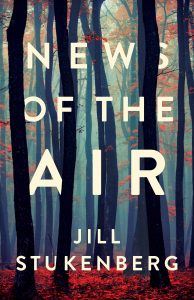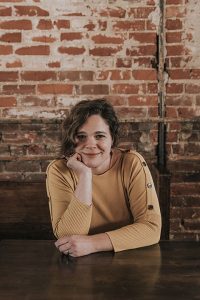 About the Book
About the Book
Allie Krane is heavily pregnant when she and her husband flee urban life after a rash of eco-terrorism breaks out in their city. They reinvent themselves as the proprietors of a northwoods fishing resort, where they live in relative peace for nearly two decades. That is, until two strange children arrive by canoe. Like the small ecological disasters lapping yearly at their shore, have the problems of the modern world finally found Allie, her husband, and their troubled cypher of a teenage daughter? This eco-novel of a family, told from three points of view, explores how we remake our lives once we open our hearts to all the news we’ve chosen to ignore.
The Excerpt
Prologue
The first time the borders closed, Allie Krane, thirty-six and pregnant, had just passed into the city. Her basketball-sized belly inconvenienced a shoulder check, so she pulled without looking to the far lane of the exit ramp, leaving behind the knot of slowing traffic. There were no barricades here, not like by O’Hare. She followed the curlicue of the ramp to the museum’s underground garage, the same route she funneled every day.
Allie left the noise of it behind—the vague reverberation of sirens always a part of city life. In the cool damp of the empty basement, in her lone ride up the elevator, she didn’t trouble to wonder what it was this time: protest, or one of the things the protestors variously protested against. None of it—city life or office life—was weirder than being pregnant, living inside her own wobbling, expanding orb. Nor that yesterday she and her husband Bud had woken in a musty cabin in distant northern Wisconsin to the calling of loons. The smell of lake water lingered in Allie’s hair.
Behind her desk in the museum’s front entryway, she slipped her feet from her shoes and soon began to think of eating her lunch. She’d been the only one coming in since the grant had run out, about the same time as the start of the summer’s turmoil. On her way to the breakroom, she paused at each of the office doors vacated by “the museum kids,” as she’d thought of them. But her younger co-workers had taken their odd degrees and their odder haircuts and cleared their stuff weeks ago. Gavin was not in his office, the last one on the right.
At the cabin this past weekend, Allie and Bud had brewed morning tea in an electric kettle, and Allie had waded into a lily-padded lake to swim, her pregnant-lady suit billowing around her. She’d gone three days without thinking of this place, office or city. While Bud had first introduced her to the Northwoods, Allie was the one most recently in love, the one who’d insisted last Friday that they hop in the car last minute. It was so hot in the city, and since becoming pregnant, she’d craved silence and cold the way women were supposed to want peanut butter and pickles, peaches and dirt.
She was standing with the workroom’s refrigerator door open when she heard the noise—a blare or burst, a buzz of static. Allie froze, not unlike the number of deer they’d caught in their headlights last night, those they’d seen and those others watching from the dark fields. City sounds didn’t normally rise to this floor, but following the tinny warbling, a sound that turned into a human voice, frantic, backed by sirens but relayed electronically, she found Gavin. He was in his office after all, on the floor, under his desk with a laptop.
The bits of metal in his ears and above his lip glinted.
“Allie.”
“It is I,” she said in the light, teasing tone he and the other museum kids used, ten years her juniors and possessed of their own way of talking, of taking in and assessing the world. His eyes flickered over her belly. But that brief moment with Gavin had been more than a year ago, before Bud, when Allie’s first marriage was breaking up and she’d first found herself in the city.
There was something about his hand that was odd, a mitten or a glove wrapped around it.
“You the only one here?”
Allie shrugged. What was he watching? She leaned for a glimpse at his laptop.
“They closed the airports,” Gavin said, the fear in his voice a contrast to his sprawled body. All the museum kids had lounged that way, perching places Allie hadn’t thought of as chairs.
“They’re still permitting business travel,” Allie said. People with the approved-in-advance documentation. And all day yesterday they’d been warning people about the airports, though maybe only she and Bud had heard it, Allie’s new husband the last man on earth who listened to public radio. Allie herself did her best to avoid the news.
Gavin shook his head and sighed. He rubbed his eyes. That her politics were different than his—than everyone’s in the office—had perhaps been what attracted him to her for that minute. She was a puzzle to solve, code to crack. But Allie wouldn’t say she held a set of politics, of any kind.
They caught sight of the smoke outside the window at the same time. Allie registered its jellyfish motion, a ballooning upward, before she took in the muffled sounds, sudden cracks, its successive partners elsewhere in the city below. It all seemed very far away except for the shiver in the building beneath her bare feet. Soon the whole sweep of sky had turned the same swirling gray as in the scene on Gavin’s laptop.
“Oh, Gavin,” Allie said, as if he were her errant child. She rose, smoothing her palm over the heft of her belly. And then, looking down at him hiding under his desk with his little worried face, she thought of what in the office was hers, what she needed to leave this place. Not much. A mug, a plant.
Gavin followed her to the parking garage. He asked, cradling his arm, if he could get a ride. Oh all right, Allie said. She’d returned to thinking about the Northwoods resort where she and Bud had stayed, Eagle’s Nest. The one they had come to think of as their cabin was one of eleven ramshackle structures perched along the north rim of a small lake—all of it perennially for sale, or so they’d joked last night, returning again and again to the idea.
An hour later, Bud exclaimed at her return—why hadn’t she turned back sooner? It was all over the news! But he didn’t notice, not immediately, the box of her things in hand, her work shoes dangling, and she didn’t tell him who’d ridden out in the trunk of her car, a former lover with a bleeding hand. Nor about the time she’d spent stopped at a checkpoint drilling her nails against the leather steering wheel while the baby kicked, as if it too had caught sight of the tanks. The car, a Benz, was all she’d taken with her from her first marriage, a thing that had vanished beneath her like a blown-out bridge. So far the baby was all she had from the second—but was a baby ever really your own? Allie didn’t tell Bud that while she’d waited a military police vehicle upended in a flooded ditch nearby had sparked and smoldered, and then begun to drift in the muddy water, as if this were just what cars in the city did now—float away.
Bud had not even tried to go into the library, his job. He’d spent the morning on personal research at home. Did she know that many small resorts practically ran themselves, the same guests returning year after year like extended family members? He’d looked up the property taxes—wait until she heard.
For Allie and Bud, buying the Northwoods resort, moving there, became a plan that survived the joking stage, the dream stage. It remained reasonable, possible, do-able even the next day with the downtown rubble cleared, the expressways and airports re-opened. Travel was to be permitted again; the protestors had been dispersed. On the whole if the world were changing—its weather patterns and disasters, the sheer number of people and how and where they lived, worked, moved, and what there was to feed them—it was only changing as it had always been, in increments, with time enough for response if things got serious. The day’s confusion had been temporary, some kind of glitch.
Still, it wasn’t a bad time to invest in a vacation destination, Bud mused. A domestic one—for the avoidance of future border hassles. No matter what was going on in the world, people would always need their little getaways.
 copyright Jill Stukenberg, 2022
copyright Jill Stukenberg, 2022
About the Author
Jill Stukenberg’s short stories have appeared in Midwestern Gothic, The Collagist (now The Rupture), Wisconsin People and Ideas magazine, and other literary magazines. She is a graduate of the MFA program at New Mexico State University and has received writing grants from the University of Wisconsin Colleges and has been awarded writing residencies at Shake Rag Alley and Write On, Door County. Jill is an Associate Professor of English at University of Wisconsin Stevens Point at Wausau. She grew up in Sturgeon Bay, Wisconsin, and previously taught in New Mexico and in the Pacific Northwest. She lives in Wausau with the poet Travis Brown and their son. https://jillstukenberg.com
Author photo by Emma Whitman


 Jill-Elizabeth LinkedIn
Jill-Elizabeth LinkedIn


Leave a Reply